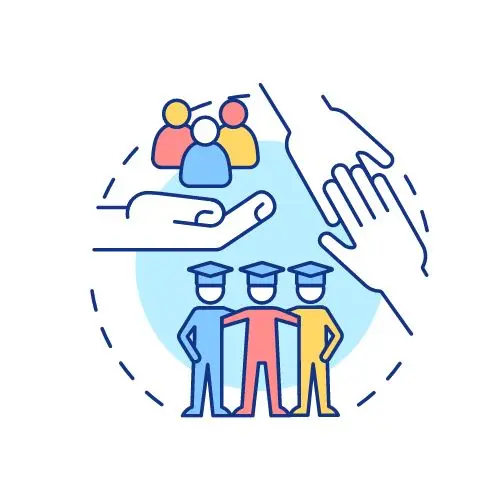Introduction
Fixing deep issues boiling within a marriage takes time and commitment—or does it? With preparation and the right approach, troubled couples can make breakthroughs to turn things around. After facilitating intensive weekend retreats for over a decade, in which husbands and wives emerge profoundly strengthened, marriage counselor Deborah Gordon shares how meaningful change is actually possible within 16 hours.
| Marriage Statistics (Forbes) |
|---|
| – 43% of first marriages end in divorce – 60% of second marriages end in divorce – 73% of third marriages end in divorce. |
| – 75% of couples cite lack of commitment as a reason for divorce. – 60% of couples cite infidelity as a reason for divorce. – 24% of couples cite domestic abuse as a reason for divorce. |
| – 6% of divorced couples remarry each other. – 72% of reunited couples remain married after reuniting. – 40% of new marriages include a partner who is remarrying. – 72% of couples reported they didn’t fully understand the commitment involved in marriage before they tied the knot. |
| – Higher marital satisfaction levels are associated with compassion and effective communication |
Create a Safe Space
Rushing to fix issues breeds defensiveness and shutdowns. Weekend programs start by literally and metaphorically establishing safety.
“We provide private lodging so spouses feel comfortable being open without distractions,” notes Gordon. Couples pen letters expressing feelings without judgment, aiding vulnerability.
Next, ground rules form a compassionate dialogue structure. Examples include only using “I” statements, active listening, reflecting back what’s heard, and allotting equal airtime.
Proper environment and guidelines make difficult conversations possible. There’s no rushing—problems stewing years arise through patience and care, not accusations.
Listen with Empathy

Discord stems from feeling misunderstood or invalidated. Active empathy listening transforms friction into caring dialogue.
We practice reframing emotional ‘you’ statements,” Gordon shares. “For example, ‘I feel hurt when you ignore my calls’ conveys the same sentiment without accusation.”
Mirroring back the full meaning and feelings heard, not just words, conveys true understanding. This affirms each person while reducing defensiveness, allowing truth to emerge gradually.
Empathy listening throughout the 16 hours facilitates gradual vulnerability to address root issues, not superficial arguments masking core conflicts. People feel truly heard for the first time.
Identify Root Triggers
Uncovering what events or behaviors ignite negative patterns provides insight into dysfunctional relationship dynamics. Detachment aids clarity.
“We discuss how certain topics or actions make each feel,” notes Gordon. “This sheds light on sensitivity areas providing compassionate understanding instead of triggering old fights.”
Mapping triggers reveal vulnerabilities that unintentionally fuel tensions and guide crafting new response strategies. Recognizing problematic habits from a removed perspective allows change.
Trigger identification within 16 hours starts dismantling conflict cycles through insight instead of reaction, empowering partners to resolve issues sensitively long-term.
Take Accountability

Constructive change demands identifying one’s role in issues rather than blaming others. Accountability opens growth opportunities.
“We encourage spouses to own mistakes without attacks,” Gordon says. This builds trust as a team working on solutions cooperatively.
Acknowledging faults or hurtful behaviors through a caring lens demonstrates dedication to bettering the relationship, not proving righteousness.
Shouldering fair accountability within 16 hours releases burdens holding the bond hostage and motivates new responsive patterns, nurturing intimacy and cooperation.
Reframe Negative Narratives
Failures stick in selective memory, fueling resentments. Recasting struggles provides a balanced perspective and compassion.
“We guide reconstructing stories fairly,” notes Gordon. “For example, acknowledge setbacks while crediting good times and intentions to humanize each other again.”
Reframing narratives within 16 hours shifts rigid mindsets sabotaging the relationship. Seeing a full spouse, not a villain, renews hope in partnership.
Commit to New Skills

Meaningful repairs require applying empathy, validation, and consistent long-term compromise through new “muscle memories.”
“We help write behavioral agreements outlining specific actions,” Gordon shares. “Seeing commitments on paper motivates daily efforts cementing healthier habits.”
Developing solutions and committing within 16 hours provides direction emerging fortified versus overwhelmed post-retreat. Progress inspires confidence in facing future difficulties united.
Personalize for Growth
While common tools facilitate breakthroughs, relationships require customized care. Attentiveness aids tailored breakthroughs.
“We tailor each minute ensuring ownership,” notes Gordon. “For some, a walk together sparks realizations. Others benefit most from alone time journaling feelings.”
Personalizing the experience maximizes insights within 16 hours for truly strengthened understanding moving forward, respecting that repairing intimacy is a unique, sacred process.
Conclusion: Hope on the Horizon
Addressing relationship fractures demands time, effort, and emotional labor. Yet even seemingly insurmountable rifts mending within intensive 16-hour programs prove that repair is always possible when approached with empathy, care, and commitment to lifelong partnership.
By establishing safety, listening actively without judgment, identifying root issues sensitively, and committing to diligent everyday efforts together through compassion, couples’ weekends demonstrate how deep understanding nourishes intimacy’s potential to bloom anew, given proper nurturance.
Though 16 hours cannot erase all hurt, the chance to reconnect hearts provides hope, sustaining diligent relationship maintenance. By refocusing on humanity’s interdependence through empathy instead of accusation, darkness transforming into light becomes a realizable journey.

